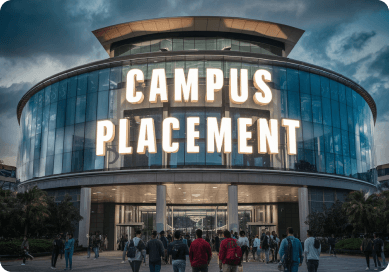Enter OTP



Nuremberg, Germany

Nuremberg, Germany

Cost Of Living

Undergraduate Fees International Students

Post Graduate Fees International Students

The University of Erlangen-Nuremberg supports exceptional students through its FAU Germany Scholarship. The university awards up to EUR 3600 each year to academically brilliant students. Many other grants and bursaries are also available, which are performance-based. The tuition fee, however, is low.
The University of Erlangen-Nuremberg is and has been home to researchers and professors of high repute. The university has also produced numerous Nobel Prize Laureates and persons holding prominent positions in the government, sciences, arts, and business. Owing to its reputation, the acceptance rate is just 50%.
Ludwig Erhard, former Chancellor of West Germany (1963–1966), studied economics at FAU. He is widely regarded as the a... View More
Ludwig Erhard, former Chancellor of West Germany (1963–1966), studied economics at FAU. He is widely regarded as the architect of Germany’s post-World War II "economic miracle" and played a pivotal role in establishing a social market economy that became a model for many other nations. View Less
A prominent German philosopher and key figure in 20th-century hermeneutics, Hans-Georg Gadamer earned his academic crede... View More
A prominent German philosopher and key figure in 20th-century hermeneutics, Hans-Georg Gadamer earned his academic credentials from FAU. His work, especially Truth and Method, reshaped the understanding of interpretation and has had a lasting influence on the humanities. View Less
Christiane Nüsslein-Volhard, who studied at FAU early in her academic journey, won the Nobel Prize in Physiology or Med... View More
Christiane Nüsslein-Volhard, who studied at FAU early in her academic journey, won the Nobel Prize in Physiology or Medicine in 1995. Her groundbreaking work in developmental biology and genetic control of embryonic development has made her a global icon in science. View Less
Physicist Theodor W. Hänsch completed part of his education at FAU before earning the Nobel Prize in Physics in 2005 fo... View More
Physicist Theodor W. Hänsch completed part of his education at FAU before earning the Nobel Prize in Physics in 2005 for his work on the frequency comb technique, which revolutionized precision measurements in optics and laser technology. View Less
Though primarily associated with his football career, legendary German striker Gerd Müller also had ties to FAU through... View More
Though primarily associated with his football career, legendary German striker Gerd Müller also had ties to FAU through honorary associations. Known as “Der Bomber,” he contributed immensely to Germany’s World Cup and European Championship victories. View Less
FAU boasts a well-integrated, multi-campus infrastructure with modern lecture halls, research labs, computing centers, and collaborative learning spaces. Its key campuses in Erlangen, Nuremberg, and Fürth house specialized institutes and technologically advanced centers, particularly for engineering, medicine, and natural sciences. The campuses are connected by excellent public transport systems and offer high-speed internet, smart classrooms, and innovation hubs.
Student life at FAU is vibrant and culturally diverse. There are over 50 student clubs and organizations that host events, language cafes, film nights, and international festivals. The university encourages student involvement in volunteering, innovation competitions, hackathons, and political or social activism. The surrounding cities of Erlangen and Nuremberg offer a dynamic blend of historical charm and modern student life with cafes, theaters, and music venues.


FAU has a dedicated Career Services Center that supports students through workshops, resume writing, interview preparation, and job search strategies. The university partners with leading companies like Siemens, Adidas, and Audi for internships, co-op programs, job fairs, and campus recruitment. Alumni networks and job portals help students transition smoothly into the workforce.
The below information is required while
completing the university application :
Higher secondary school certificate (12 years of schooling) with university entrance qualification (e.g., Indian students: A minimum of one year of university study or qualifying via APS & Studienkolleg).
German language proficiency for most Bachelor programs:
DSH-2, TestDaF (4x4), Telc C1 Hochschule, Goethe-Zertifikat C2.
For English-taught programs (limited), English proficiency:
IELTS (6.5+), TOEFL (min 90 iBT), or equivalent.
Valid passport and academic transcripts.
Know moreFAU maintains strong ties with leading global companies and research institutions, which enables a dynamic and structured campus recruitment environment. The university collaborates with corporations such as Siemens, Adidas, Audi, Bosch, and Google for internship placements, industrial projects, and job opportunities. Career fairs like "bonding" and "Contact – Company Day" provide students direct access to recruiters and HR managers. Dedicated career services assist students with resume writing, interview preparation, and connecting with alumni in relevant industries. The university's strategic location in the Nuremberg metropolitan region, an industrial and innovation hub, enhances job prospects for graduates.



The University of Erlangen Nuremberg is one of the handfuls of universities and first in Germany to open its overseas campus in Busan, South Korea. The university campus in Busan offers a program in Chemical and Bioengineering and a research center. The university is currently working with various companies and universities in South Korea to convert the Busan-Jinhae Free Economic Zone into an educational hub.
The University of Erlangen-Nuremberg was declared as winner in the German Universities Excellence Initiative by the German Research Foundation. The university’s Engineering/Technology and Computer Sciences department was ranked 2nd in Germany by the Academic Ranking of World Universities (ARWU).


FAU was officially recognized as a key AI research hub in Bavaria, thanks to initiatives like the ADA Lovelace Center for Analytics, Data, and Applications and partnerships with Siemens and Fraunhofer IIS.
The Energy Campus Nuremberg (EnCN), coordinated by FAU, expanded to support sustainable energy research. It became a central hub for green energy technologies including hydrogen and battery innovation.
FAU supported the Medical Valley Digital Health Application Center, aiding start-ups in developing certified digital health applications (DiGAs) under Germany’s Digital Healthcare Act. This placed FAU at the core of digital healthcare innovation.
According to the German Patent and Trade Mark Office (DPMA), FAU became Germany’s top university in patent applications, reflecting its strong ties to innovation and technology transfer.
In Reuters’ 2018 ranking, FAU was named the most innovative university in Germany and #2 in Europe. This recognized FAU’s patent output, industry collaboration, and impactful research in technology and engineering.
FAU has cultivated a robust innovation culture supported by institutions like FAU Digital Tech Academy, Zollhof Tech Incubator, and the Innovation Hub Erlangen. These bodies foster entrepreneurship and encourage students and researchers to transform ideas into market-ready products. The university supports start-ups in AI, MedTech, renewable energy, and digital health. Many student and faculty-led ventures have gone on to receive funding from national and EU innovation grants. This innovation-driven ecosystem has earned FAU a reputation as one of Europe’s most innovative universities, with a strong emphasis on interdisciplinary collaboration and industry transfer. Research and Development at FAU is highly interdisciplinary and application-oriented. With over 500 ongoing research projects and 180 active collaborations with international institutions, FAU leads in areas such as medical engineering, material science, artificial intelligence, climate research, and photonics. It houses several cutting-edge research centers, including the Max Planck Center for Physics and Medicine, Helmholtz Institute Erlangen-Nuremberg for Renewable Energies, and the Bavarian AI Network.
FAU researchers from the Institute of Chemistry and Pharmacy developed next-generation solid-state batteries with enhanced energy density and safety. These batteries are aimed at powering electric vehicles more efficiently.
FAU scientists made a breakthrough in low-cost, efficient materials for hydrogen fuel cells, contributing to the shift toward sustainable energy sources. Their research supports advancements in clean automotive technologies.
A team at the Pattern Recognition Lab (Prof. Andreas Maier) pioneered AI tools for image-guided surgery. These tools enhance surgical precision using real-time data processing and are used globally in modern operating rooms.
Researchers at FAU's Department of Materials Science developed intelligent sensor materials that can respond to environmental changes such as pressure or temperature. These materials have applications in robotics, automotive safety, and biomedical devices.
FAU researchers, in collaboration with Siemens Healthineers, worked on developing Magnetic Particle Imaging (MPI), a novel imaging technique that enables real-time visualization of body structures using magnetic nanoparticles, without radiation exposure.














Embark on your educational journey with confidence! Our team of admission experts is here to guide you through the process. Book a free session now to receive personalized advice, assistance with applications, and insights into your dream school. Whether you're applying to college, graduate school, or specialized programs, we're here to help you succeed.
